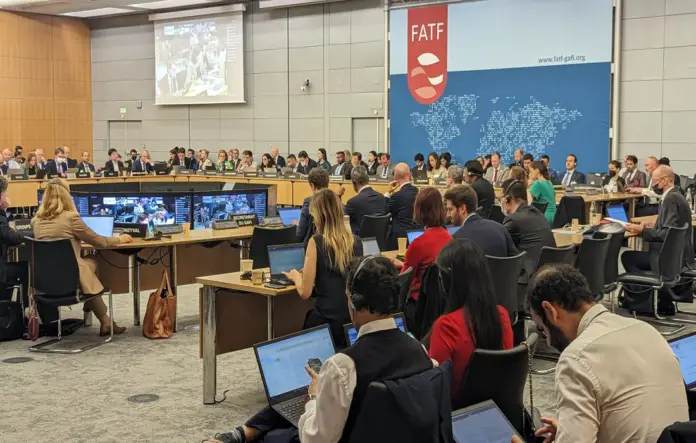Pakistan has been removed from the increased monitoring ‘Grey List’ of the global anti-money laundering and -terror financing watchdog – Financial Action Task Force (FATF) – after a period of four years.
For Pakistan to be on the ‘grey list’, it meant that the country had committed to resolve swiftly the identified strategic deficiencies within agreed timeframes and was subject to increased monitoring. Such monitoring is removed when a country exits the ‘grey list’.
The plenary session of the Financial Action Task Force (FATF), global anti-money laundering and terrorism financing watchdog, was held in Paris on October 20-21.
Pakistan had been hopeful that its name will be removed from the grey list; it was put in the grey list in 2018 and was given an action plan to implement 27 points, but later it was asked to implement seven more points.
Pakistan had given a roadmap for implementation at the highest political level by implementing these points and a 15-member delegation of FATF had also visited Pakistan to review the implementation of these points.
The FATF had said that delegations of 206 international organizations, including delegations from Interpol, IMF and World Bank, will also participate in the meeting.
Earlier, in a meeting held in June, FATF had said that it was keeping Pakistan on the ‘increased monitoring list’, also known as the ‘grey list’, but said it might be removed after an on-site visit to verify progress.
Last month, the Foreign Office said that a FATF technical team had conducted a “successful” visit and Islamabad was expecting a “logical conclusion” of the evaluation process in October.
Minister of State on Foreign Affairs Hina Rabbani Khar had already reached Paris with a team to represent Pakistan.
Pakistan’s four-year process under different governments to confront terrorism financing had cleared all requirements and conditions except for one related to demonstrating investigations and prosecutions against senior leaders of the UN-designated militant groups, which it finally completed.
Michael Kugelman, director of the South Asia Institute at the Washington-based Wilson Centre think-tank, had said, “When Pakistan, in recent months announced new sentences for Lashkar-e-Taiba’s Hafiz Saeed and Sajid Mir that’s what got things done in the end.”








Comments are closed.